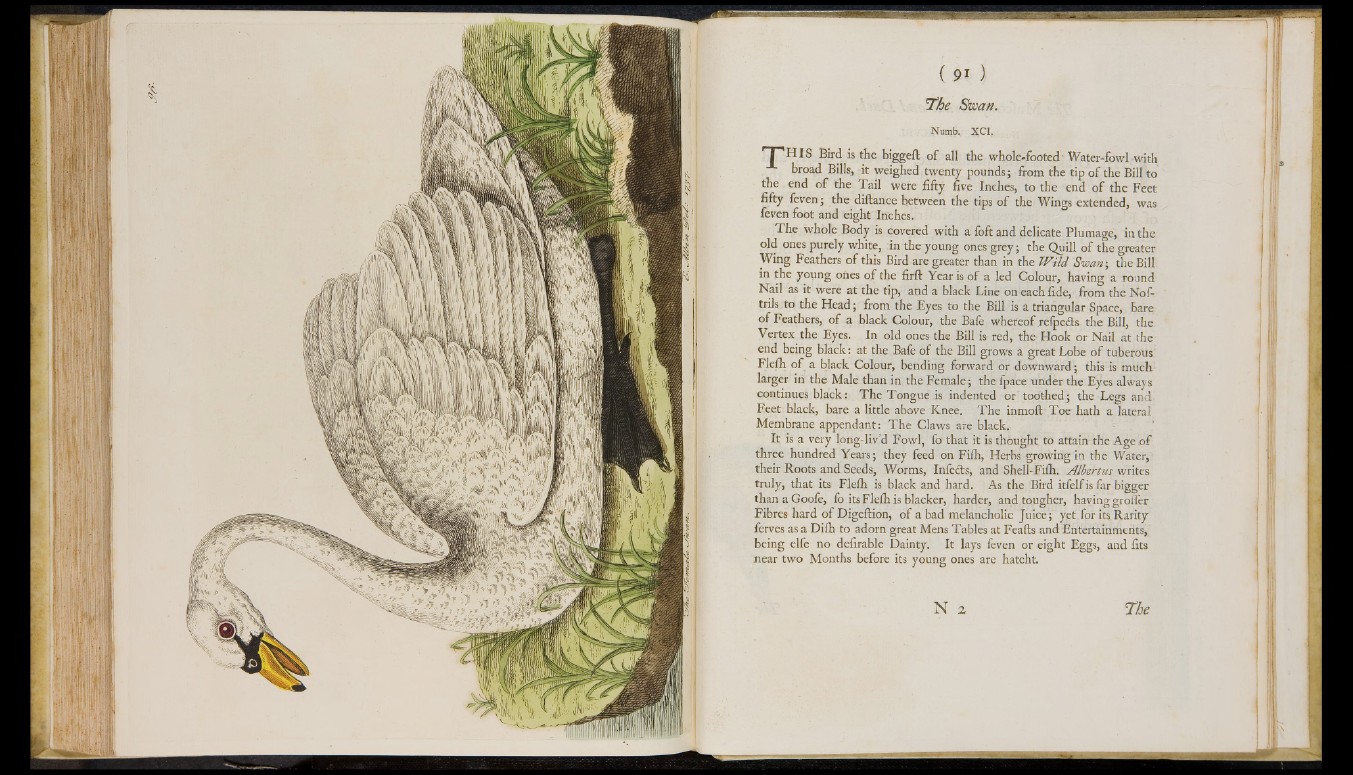
The Swan.
. Numb. X C I .
' I 'H IS Bird is the biggefl: of all the whole-footedi Water-fowl with
broad Bills, it weighed twenty pounds; from the tip o f the Bill to
the . end of the Tail were fifty five Inches, to the end of the Feet
fifty ieven; the diftance between the tips of the Wings extended, was
feven foot and eight Inches.
The whole Body is covered with aToft and delicate Plumage, in the
old ones purely white, in the young onesgrey; the Quill of the greater
Wing Feathers of this Bird are greater than in the W ild Swan; the Bill,
in the yoyng ones of the firft Year is of a led Colour, having a round
Nail as it were at the tip, and a black Line on each fide, from the Nof-.
trils to the Head; from the Eyes to the Bill is a triangular Space, bare
of Feathers, of a black Colour, the Bale whereof reipe&s the Bill, the
Vertex the Eyes. In old ones the Bill is- red, the Hook or Nail at the
end being black: at the Bafe of the Bill grows a great Lobe of tuberous'
Fleih o f a black Colour, bending forward or downward; this is much
larger iri the Male than in the Female; the fpace under the Eyes always
continues black: The Tongue is indented or Toothed; the Legs and
Feet black, bare a little above Knee. The inmoft Toe hath a lateral
Membrane appendant: The Claws are black.
It is a very long-liv’d Fowl, fothat it is thought to attain the Age o f
three hundred Years; they feed on Fiih, Herbs growing in the Water,
their Roots and Seeds, Worms, Infe£ts, and Shell-Fiih. Albertus writes
truly, that its Fleih is black and hard. As the Bird itfelf is far bigger
thanaGoole, io its Fleih is blacker, harder, and tougher, having groiler
Fibres hard of Digeftion, of a bad melancholic Juice; yet for its Rarity
ferves as a Diih to adorn great Mens Tables at Feafts and Entertainments,
being elfe no defirable Dainty. It lays feven or eight Eggs, and fits
near two Months before its young ones are hatcht.
N a